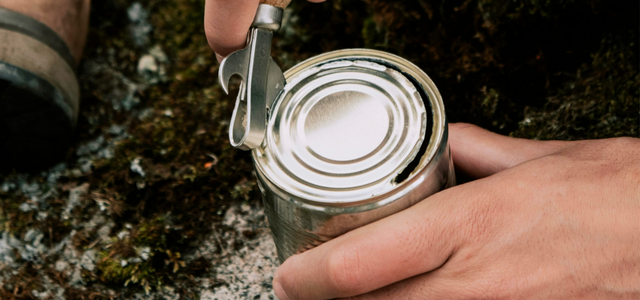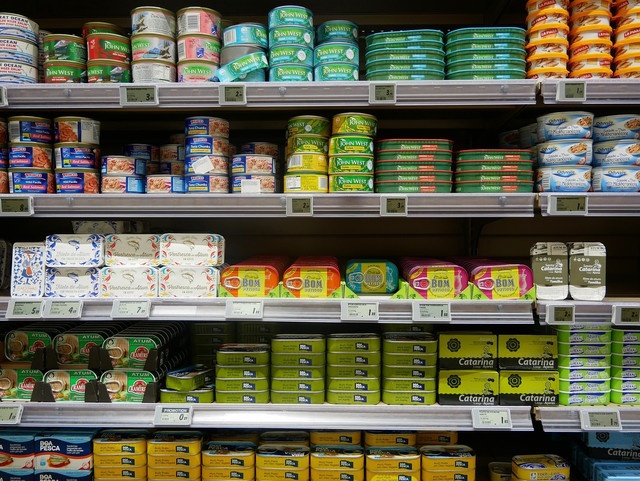
Canned ravioli can be a quick meal if you don’t want to cook. You should never heat the ravioli in the can, as harmful substances can be released from the packaging and transferred to your food.
Canned ravioli are packaged in metal containers and therefore have a long shelf life. You can buy them in bulk and prepare them in no time at all. To avoid the hassle of washing up, it can be tempting to heat the ravioli in the can and eat it from there.
However, consumer protection and health institutions strongly advise against this. The health risk due to the pollutants in the canned goods is high.
Canned ravioli: Do not heat in the can

(Photo: CC0 / Pixabay / sheprayedforhim)
The warning that ravioli must not be heated in the can is due to the substance bisphenol A (BPA). As Stiftung Warentest explains, most canned goods contain harmful substances such as BPA, which in turn are transferred to the food they contain.
Read more here: Stiftung Warentest warns of health hazard: BPA in cans
BPA has already been studied many times and is therefore classified as harmful to health according to the Federal Institute for Risk Assessment (BfR).
The risk: When the ravioli is heated in the can, bisphenol A could be released. Nutrition expert Daniela Krehl from the Bavarian Consumer Center explains to the dpa: “Fatty ingredients combined with heat can intensify this effect.”
Hence Krehl’s recommendation: “Under no circumstances should you heat the can directly, but rather pour the contents into a pot – even if that means that you need additional cookware and have to wash it up.”
The BPA problem

(Photo: CC0 / Pixabay / Joenomias)
To avoid bisphenol A, you should never heat ravioli in the can. But what exactly is the problem with BPA?
According to the consumer advice center, metal packaging has a number of advantages: food has a particularly long shelf life and the packaging material has a particularly high recycling rate. At the same time, there is a risk that the pollutants will migrate into the food.
The Federal Center for Nutrition explains that BPA has a hormone-like effect. The substance therefore affects the hormonal system and can therefore affect fertility and promote tumor formation, according to the BfR.
Despite the health risk, BPA continues to be used in canned goods. The result: 83 percent (as of 2023) of Germans are exposed to amounts of BPA that exceed the maximum dose.
Based on the latest research, the European Food Safety Authority has therefore set an acceptable daily amount of two nanograms per kilogram of body weight.
By the way: Due to the health risk, you should never store leftovers in the can.
Conclusion: Ravioli in the pot and avoid BPA
To ensure that you avoid harmful substances in food as much as possible, it is therefore advisable to avoid canned goods or plastic containing BPA.
If you do buy food like ravioli in metal packaging, use a pot to heat it up and dispose of the can properly. Also, store leftovers in alternative containers after opening, such as plastic-free lunch boxes.
As an alternative, you can also buy frozen food instead of canned food. Even better: you can simply make your own ravioli.
Read more on Techzle\.com:
- Tritan: Plastic drinking bottle without BPA – safe?
- Bisphenol S: What you need to know about the substitute
-
Plastic packaging: How many pollutants end up in food?
With material from dpa.
** marked with ** or orange underlined Links to sources are partly affiliate links: If you buy here, you are actively supporting Techzle\.com, because we then receive a small part of the sales proceeds. .